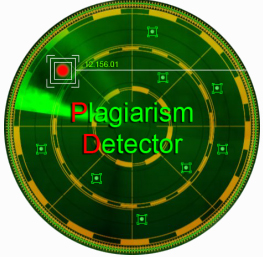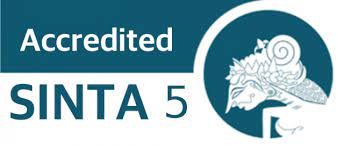TEACHER’S DIRECTIVE ILLOCUTIONARY ACTS IN ENGLISH LANGUAGE CLASSROOM
Abstract
The proficiency of the teacher is an important thing to achieve the goal of studying in class. Teachers can use many utterances such as commanding, requesting and also suggesting to students to control the class while teaching and learning progress is going on. Directing an utterance to students should be done rightly to make the messages of utterances conveyed to the students in the class.This research was conducted to find out the types and how the way teacher used directive illocutionary acts in English language classrooms at a course in Bandar Lampung. This research also explains the context of meaning inside of the utterance that was spoken by the teacher in the class while delivering the material. In addition, the qualitative method was applied in this research.In particular, seventeen utterances are categorized as command type of directive illocutionary act, with 73,92% of it. Meanwhile, four utterances are categorized as request type of directive illocutionary acts with 17,39% of it. The last type of directive illocutionary act is request and the writer found two utterances with 8,69% of it.
Keywords: Directive Illocutionary Acts, English Language Classroom, English Course, Teacher
Full Text:
PDFReferences
Afrianto, A., & Gulö, I. (2019). Revisiting english competence at hotel. Teknosastik, 17(1), 35-39. doi:https://doi.org/10.33365/ts.v17i1.248
Afrianto, A., & Widianto, W. (2022). Mythological and historical representation: a critical discourse analysis on aeschylus’s poems the sacrifice of iphigenia and the battle of salamis. Journal of Arts and Education, 1(2).
Afrianto, Sujatna, E. T., Darmayanti, N., & Ariyani, F. (2021). Configuration of Lampung mental clause: A functional grammar investigation. Advances in Social Science, Education and Humanities Research. https://doi.org/10.2991/assehr.k.210325.039.
Creswell, W. J., & Creswell, J. D. (2018). Research design: Qualitative, quantitative and mixed methods approaches. California: Sage.
de Jager, L., & Evans, R. (2013). Misunderstanding during instructional communication as related to oral proficiency. Southern African Linguistics and Applied Language Studies, 31(1), 97–110. doi:10.2989/16073614.2013.793955
Hutauruk, M., & Puspita, D. (2020). A metapragmatic analysis: a study of pragmatic failure found in indonesian EFL students. Linguistics and Literature Journal, 1(2), 62–69. doi:https://doi.org/10.33365/llj.v1i2.589
Kreidler, C. (2013). Introducing English Semantics (2nd ed.). London: Routledge. doi:https://doi.org/10.4324/9781315886428
Kuswoyo, H., Sujatna, E. T. S., Indrayani, L. M., Rido, A., & Macdonald, D. (2021). ‘Let’s take a look...’: An investigation of directives as negotiating interpersonal meaning in engineering lectures. Pertanika Journal of Social Sciences and Humanities, 29(1), 47- 69.
Kuswoyo, H., Sujatna, E. T. S., Indrayani, L. M., Rido, A. (2020). Schematic structure and lexicogrammatical features of aerospace engineering English lectures: A systemic functional linguistic approach. Asian EFL Journal 27(4.6), 171-203.
Pranoto, B. E., & Suprayogi. (2020). Incorporating 9GAG memes to develop EFL learners' speaking ability and willingness to communicate. IJEE (Indonesian Journal of English Education), 7(2), 130-144.
Prasetyo, R. I., & Mulyani, M. (2018). Teachers directives speech acts in teaching-learning interactions: classroom discourse analysis. Seloka: Jurnal Pendidikan Bahasa dan Sastra Indonesia,7(123), 213–221. doi:10.15294/seloka.v7i3.26607
Puspita, D. (2019). Error analysis on learners’ interlanguage and intralanguage: a case study of two adolescent students. Teknosastik, 17(2), 12–18. doi:https://doi.org/10.33365/ts.v17i2.321
Puspita, D., & Amelia, D. (2020). Ted-talk: a supplement material to promote students’autonomy in listening. Eltin Journal: Journal of English Language Teaching in Indonesia, 8(2), 91–102. doi:https://doi.org/10.22460/eltin.v8i2.p91-102
Puspita, D., & Pranoto, B. E. (2021). The attitude of Japanese newspapers in narrating disaster events: Appraisal in critical discourse study. Studies in English Language and Education, 8(2), 796-817.
Rahim, A. R. (2022). Pragmatic study of high school teacher directive speech acts in classroom teaching and learning activities. Jurnal Mantik, 6(3) , 3153-3157. doi:https://doi.org/10.35335/mantik.v6i3.3114
Rayhana, Z. B., (2020). An analysis of directive speech act used by tutor in Saturday class for junior high school at ELTI Gramedia Solo (Master's thesis, IAIN Surakarta, Surakarta, Indonesia). Retrieved from: http://eprints.iain-surakarta.ac.id/id/eprint/262
Rido, A. (2020). English for university graduate employability: Students and employers’ voices. In Twelfth Conference on Applied Linguistics (CONAPLIN 2019) (pp. 6-10). Atlantis Press.
Rido, A. (2020). "Why they act the way they do?": Pedagogical practices of experienced vocational English language teachers in Indonesia. International Journal of Language Education, 4(1), 24-37.
Rido, A., Prakoso, B. H., Kuswoyo, H. (2023). Thank you very much: Feedback strategies in university English literature lecture interaction. European Journal of Educational Research 12(10), 29-40
Stephenson, M. (2019). Setting the group agenda : Negotiating deontic rights through directives in a task-based , oral, L2, group assessment. Classroom Discourse, 11(4), 337-365. doi:https://doi.org/10.1080/19463014.2019.1651750
Yanti, D. R., Amin, M., & Amrullah, A. (2021). The analysis of speech acts used by EFL teachers’ in classroom interaction at SMAN 2 Mataram in academic year 2021/2022. International Journal of Multicultural and Multireligious Understanding, 8(5), 90-98. doi:http://dx.doi.org/10.18415/ijmmu.v8i5.2538
Yule, G. (1996). Pragmatics. Oxford: University Press.
DOI: https://doi.org/10.33365/llj.v4i2.3795
Refbacks
- There are currently no refbacks.
Linguistics and Literature Journal
Published by Universitas Teknokrat Indonesia
Organized by Faculty of Arts and Education
Jl. Zainal Abidin Pagaralam, No.9-11, Labuhanratu, Bandarlampung, Indonesia
Telepon : 0721 70 20 22
W : http://jim.teknokrat.ac.id/index.php/linguistics_and_literature/index










